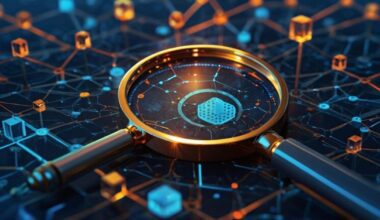Summary: This article delves into the transformative impact of quantum leaps in Machine Learning. It discusses key trends driving advancements, diverse applications across industries, and the benefits of enhanced speed and accuracy. Additionally, it addresses challenges and risks while exploring emerging trends and the future landscape of Machine Learning.
Introduction
The intersection of Quantum Computing and Machine Learning is poised to redefine the landscape of technology, enabling unprecedented advancements in data processing and problem-solving capabilities.
As we delve into the concept of “quantum leaps” in Machine Learning, it becomes essential to understand how these revolutionary concepts are reshaping industries and enhancing the efficiency of algorithms.
This blog aims to explore the various dimensions of quantum leaps in Machine Learning, including their definitions, driving trends, applications, benefits, challenges, and future prospects.
What are Quantum Leaps in Machine Learning?
Quantum leaps in Machine Learning refer to significant advancements facilitated by Quantum Computing technologies that enhance traditional Machine Learning methodologies.
Unlike classical computers that rely on bits (0s and 1s), quantum computers utilise quantum bits or qubits. Qubits can exist in multiple states simultaneously due to superposition, allowing quantum systems to perform complex calculations at speeds unattainable by classical systems.
This capability leads to more efficient training of Machine Learning models, enabling them to analyse vast datasets and solve intricate problems with greater accuracy.
Quantum Machine Learning (QML) is a burgeoning field that combines principles from quantum mechanics with Machine Learning algorithms, paving the way for innovative solutions across various sectors such as finance, healthcare, and logistics.
Key Trends Driving Quantum Leaps in Machine Learning
Several key trends are propelling the integration of Quantum Computing into Machine Learning. These trends are reshaping how industries approach complex problems are listed here:
Exponential Data Growth
The volume of data generated globally is skyrocketing, making it increasingly challenging for classical systems to process and analyse this information effectively. Quantum Computing holds the potential to manage this data surge efficiently.
Advancements in Quantum Hardware
Continuous improvements in quantum hardware are making Quantum Computing more accessible and practical for real-world applications. Companies like IonQ are developing prototypes that demonstrate superior performance compared to classical counterparts.
Increased Investment
Significant investments from both private and public sectors are fueling research and development in quantum technologies. This financial backing is accelerating breakthroughs in QML algorithms and applications.
Interdisciplinary Collaboration
The convergence of experts from diverse fields—quantum physics, computer science, and Data Analytics—is fostering innovative approaches to solving complex problems through QML.
Applications of Quantum Leaps in Machine Learning
Quantum leaps in Machine Learning have far-reaching implications across various industries. These applications illustrate the transformative potential of quantum leaps in Machine Learning, enabling industries to tackle challenges that were previously considered insurmountable.
Financial Forecasting
Quantum Machine Learning (QML) enhances financial forecasting by utilising quantum algorithms to improve the accuracy of predictions. Techniques such as quantum neural networks and Determinantal Point Processes significantly boost the performance of traditional models, enabling better risk assessment and more precise market predictions, ultimately leading to smarter investment strategies.
Drug Discovery
In pharmaceuticals, QML accelerates drug discovery processes by simulating molecular interactions at unprecedented speeds. Quantum algorithms can analyse complex biochemical data, identifying potential drug candidates more efficiently than classical methods. This capability reduces the time and cost associated with bringing new medications to market, ultimately improving patient outcomes.
Fraud Detection
Quantum Machine Learning offers advanced techniques for detecting fraudulent activities in financial transactions. By analysing vast datasets with quantum-enhanced algorithms, organisations can identify patterns and anomalies that indicate fraud more effectively. This leads to quicker responses and enhanced security measures, safeguarding both businesses and consumers.
Supply Chain Optimisation
QML optimises supply chain management by analysing data related to inventory levels, demand forecasts, and logistics in real-time. Quantum algorithms can solve complex optimization problems, helping companies reduce costs and improve efficiency. This capability allows businesses to adapt swiftly to changing market conditions and customer needs.
Climate Modelling
Quantum Computing enhances climate modelling by processing large datasets related to environmental changes with greater accuracy. QML can simulate intricate climate systems and predict future scenarios more effectively than classical models. This application aids researchers in understanding climate dynamics, informing policy decisions, and developing strategies for mitigating climate change impacts.
Benefits of These Quantum Leaps
The integration of Quantum Computing into Machine Learning presents several advantages. As a result, organisations can unlock revolutionary applications, driving innovation and improving outcomes in fields such as finance, healthcare, and logistics.
Enhanced Speed and Efficiency
Quantum Machine Learning (QML) significantly accelerates the training and execution of algorithms compared to classical computing. By leveraging quantum properties like superposition and entanglement, QML can process vast amounts of data. This leads to faster results in complex computations.
This speedup is crucial for applications requiring real-time analysis, such as financial forecasting and autonomous driving systems.
Improved Learning Capacity
Quantum Computing allows for an increase in the capacity of Machine Learning models, enabling them to handle more complex structures and relationships within data.
QML can learn from fewer examples without sacrificing performance, making it particularly beneficial in fields like healthcare, where data may be limited or costly to obtain. This ability to efficiently manage complexity enhances model generalisation and accuracy.
Superior Optimisation Techniques
Quantum algorithms excel at solving optimization problems, which are prevalent in Machine Learning tasks such as hyperparameter tuning and feature selection.
By utilising quantum parallelism, QML can evaluate multiple solutions simultaneously, leading to more effective optimization strategies. This capability results in better-performing models that can adapt quickly to changing data landscapes.
Handling Noisy Data
QML demonstrates a unique advantage in coping with noisy or incomplete datasets. Quantum algorithms can extract meaningful patterns from data that may be too complex or distorted for classical methods to analyse effectively.
This robustness is particularly valuable in real-world applications where data imperfections are common, such as image recognition and natural language processing.
Revolutionary Applications Across Industries
The integration of quantum leaps in Machine Learning opens doors to groundbreaking applications across various sectors, including pharmaceuticals, finance, logistics, and climate modelling.
For instance, QML can accelerate drug discovery by simulating molecular interactions more efficiently than classical methods. These advancements not only improve existing processes but also enable entirely new capabilities that were previously unattainable with traditional computing technologies.
Challenges and Risks
Quantum leaps in Machine Learning present significant challenges and risks that must be addressed to fully harness their potential. Here are some key challenges:
Decoherence
Decoherence is a major challenge in Quantum Computing, where qubits lose their quantum state due to external environmental factors. This sensitivity can lead to errors in computations, making it difficult to maintain the integrity of quantum information over time.
Researchers are actively developing error correction techniques and exploring new materials to mitigate decoherence effects.
Error Correction
Developing reliable error correction methods is crucial for the practical application of Quantum Computing. Quantum systems are susceptible to noise and errors that can accumulate during computations, degrading performance.
Effective error correction strategies are needed to ensure the reliability of quantum algorithms and enable their deployment in real-world applications.
Scalability
Scaling quantum computers to handle a larger number of qubits while maintaining coherence and low error rates remains a significant hurdle.
Current quantum systems are relatively small compared to classical computers, and achieving scalability is essential for tackling complex problems across various industries.
Hardware Development
The development of high-quality quantum hardware poses a major challenge. Different qubit technologies have their own strengths and weaknesses, and creating scalable, fault-tolerant qubit systems is a focus of ongoing research.
Ensuring compatibility and interoperability between various quantum platforms will also be critical as the field evolves.
Complexity of Software Ecosystem
The software ecosystem required to leverage Quantum Computing effectively is complex and still under development. Adapting existing Machine Learning algorithms for quantum environments requires innovative approaches, as many classical algorithms may not seamlessly transition to quantum frameworks.
This complexity can hinder widespread adoption and commercial application of quantum Machine Learning technologies
Emerging Trends in Quantum Leaps in ML
As research progresses, several emerging trends are expected to shape the future of quantum leaps in Machine Learning. These developments promise to enhance computational capabilities, optimise complex problem-solving, and accelerate innovation across various industries.
Hybrid Models
The combination of classical and quantum algorithms may become prevalent as organisations seek ways to leverage existing infrastructure while exploring quantum capabilities5.
Increased Focus on Error Correction
Research into error correction techniques will be crucial for enhancing the reliability of quantum computations, enabling practical applications across various domains56.
Expansion into New Industries
As QML matures, its applications may extend beyond traditional sectors like finance and healthcare into areas such as agriculture, environmental science, and even entertainment26.
The Future of Machine Learning: What’s Next?
The future of Machine Learning lies at the intersection of classical AI methodologies and emerging quantum technologies. As advancements continue:
Scalability Improvements
Researchers aim to develop scalable quantum algorithms capable of handling larger datasets without compromising performance.
Interdisciplinary Collaboration
Ongoing collaboration between experts from various fields will foster innovative approaches to harnessing the full potential of QML.
Regulatory Frameworks
Establishing regulatory frameworks will be essential for addressing ethical concerns surrounding data privacy and security as QML technologies evolve.
In summary, the future promises a paradigm shift where Machine Learning capabilities are dramatically enhanced through the integration of Quantum Computing.
Conclusion
Quantum leaps in Machine Learning represent a groundbreaking evolution in computational capabilities that hold immense promise across various sectors. By harnessing the unique properties of qubits—superposition and entanglement—Quantum Computing enables faster processing speeds, improved accuracy, and solutions to complex problems previously deemed unsolvable by classical methods.
As we navigate this exciting frontier, it is essential to address the associated challenges while leveraging emerging trends that will shape the future landscape of technology.
Frequently Asked Questions
What is Quantum Machine Learning (QML)?
Quantum Machine Learning (QML) is an interdisciplinary field that combines principles from quantum mechanics with Machine Learning algorithms to enhance data processing capabilities.
How Does Quantum Computing Improve Machine Learning?
Quantum Computing improves Machine Learning by enabling faster processing through superposition and entanglement, allowing multiple calculations simultaneously and leading to quicker model training times.
What Industries Can Benefit from QML?
Industries such as pharmaceuticals, finance, healthcare, supply chain management, climate science, and many others stand to benefit significantly from advancements in Quantum Machine Learning technologies.




